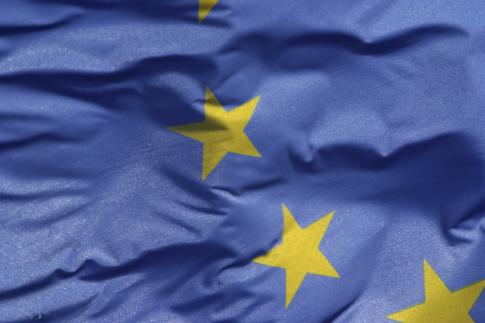Don’t Fear the Euroskeptics

Euroskeptics make vague claims that Europe is...
Daniel Gros*
Although the European Union is arguably as popular as ever, the next European Parliament may well contain a large minority of forces skeptical or hostile to further integration. Instead of viewing this as a threat, pro-Europeans should seize the opportunity to start a necessary debate about the continent’s future.
BRUSSELS – As the European Parliament elections draw closer, most opinion polls predict a strong showing by parties that declare themselves Euroskeptic to varying degrees. But their likely success represents an unsurprising backlash against recent European integration, rather than opposition to the European Union itself.
After all, Euroskeptic or “Euro-hostile” parties are nothing new. They also had a large presence in the first directly elected European Parliament back in 1979, when the EU was known as the European Economic Community (EEC) – or the “Common Market” – and consisted of only nine member states.
In addition to being far smaller than today’s 28-member EU, the EEC did much less. Even calling it a common market now seems an exaggeration, because member states had agreed only on a customs union with a common external tariff and external trade policy. Within the EEC, there were still customs checks on goods and passport controls, and many member states prohibited capital exports.
It is testimony to the strides that European integration has made since then that one of the options for a post-Brexit United Kingdom is to remain in the EU’s customs union. Fifty years ago, this would have been equivalent to full membership.
Back in 1979, the strongest Euroskeptic parties were on the left. They opposed the Common Market because they disliked market forces in general. More specifically, they believed that further European integration would favor capitalists by lowering the trade barriers that had been erected to protect workers.
In hindsight, the left’s opposition to the Common Market seems premature, given that member states’ trade, although increasing, then accounted for a much smaller proportion of national income. At the time, the ratio of exports to GDP was below 20% for most of the larger EEC members, compared to nearly 50% today. But the trend toward more economic integration was already clear, and West European communists and hardline socialists were fundamentally opposed to it.
The current rise of Euroskeptic parties, meanwhile, comes at a time when the EU is more popular than ever, according to opinion polls. This is mainly because the flows of asylum seekers have been brought under control, and because Europe’s economy is doing better than it has for a long time, with unemployment down to the lowest level this century. As a result, even the most Euroskeptic politicians have backpedaled on their opposition to “Brussels.” And in Sweden, France, and Italy, the main Euroskeptic parties have abandoned their demands to leave the euro or the EU.
We should therefore not regard Euroskeptic parties’ current strength as reflecting widespread dissatisfaction with what the EU is doing, or with the state of the European economy. Rather, it represents a backlash against the recent pace of European integration. Europe’s various crises over the past decade have led to a huge expansion of the EU’s powers, and it would have been surprising had national politicians not objected to such a large transfer of sovereignty.
Similarly, the United States is the result of a long process of integration, marked by a constant debate about the extent of states’ rights and the remit of the federal government. The US Federal Reserve, for example, was established only after more than a century of frequent banking crises.
Political forces that question the current speed of European integration are part of a healthy democratic process. In fact, one could even argue that the Euroskeptic parties are more honest than their mainstream counterparts. After all, despite their pro-European rhetoric, once mainstream parties come to power at the national level, they, too, are extremely reluctant to transfer any sovereignty to EU institutions.
The real test will come after this month’s elections, when the Euroskeptic parties will have to articulate an alternative coherent vision of Europe and the EU’s role in it. Such a vision is unlikely to emerge. The key steps in recent years toward further EU integration – including the establishment of the European Stability Mechanism to help financial distressed member states, the EU’s banking union, and the European Border and Coast Guard Agency – were clearly necessary, because national efforts in these areas had not worked. Tellingly, even staunchly Euroskeptic parties are not calling for these institutions to be abolished.
Euroskeptics make vague claims that Europe is not working, and that only they can defend the interests of their national electorates. But in practice, it has been impossible to translate this “my country first” into coherent policy within the European Parliament – not least because most of what the EU does benefit member states. Moreover, Euroskeptic parties find it difficult to forge coalitions. Northern European populists, for example, would like to stop all assistance to the EU’s periphery, whereas their Southern European counterparts think they are not getting enough support.
It seems that Europeans now love both the EU and populists. Instead of bemoaning this fact, much less viewing it as a threat, pro-Europeans should seize the opportunity to start a necessary debate about the continent’s future.
*Daniel Gros is Director of the Center for European Policy Studies.




 del.icio.us
del.icio.us Digg
Digg

Post your comment